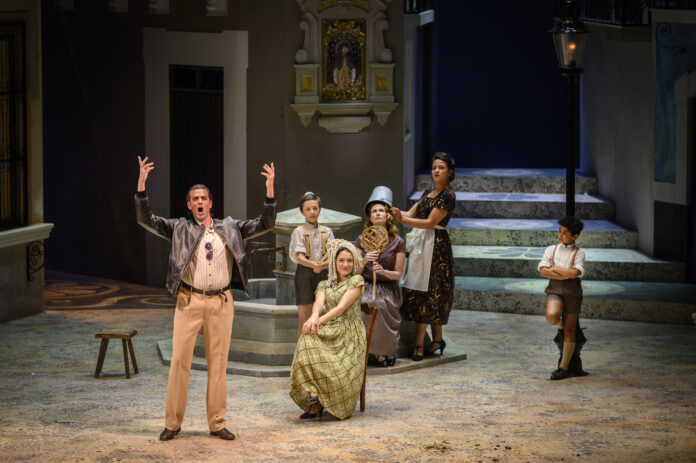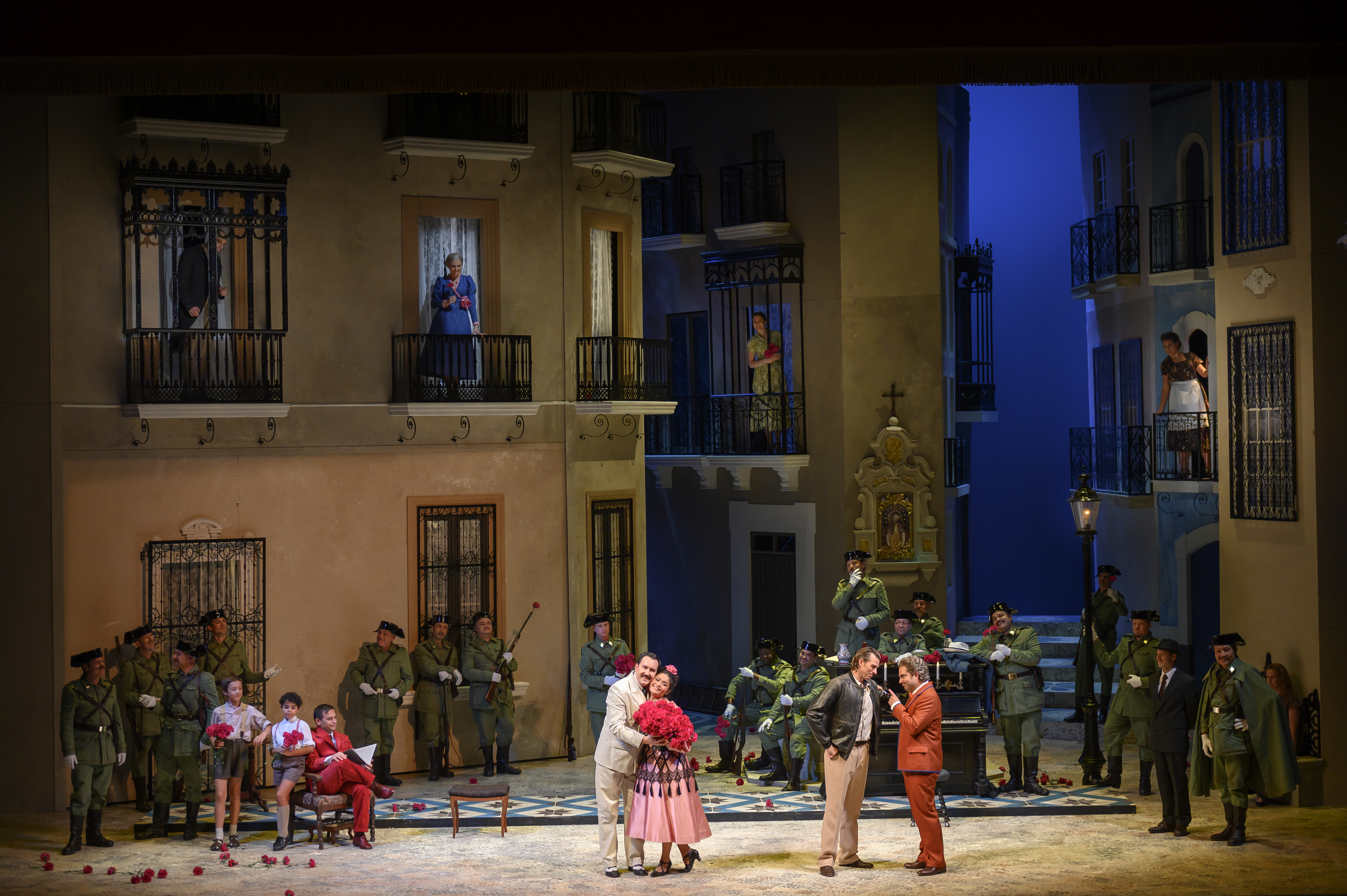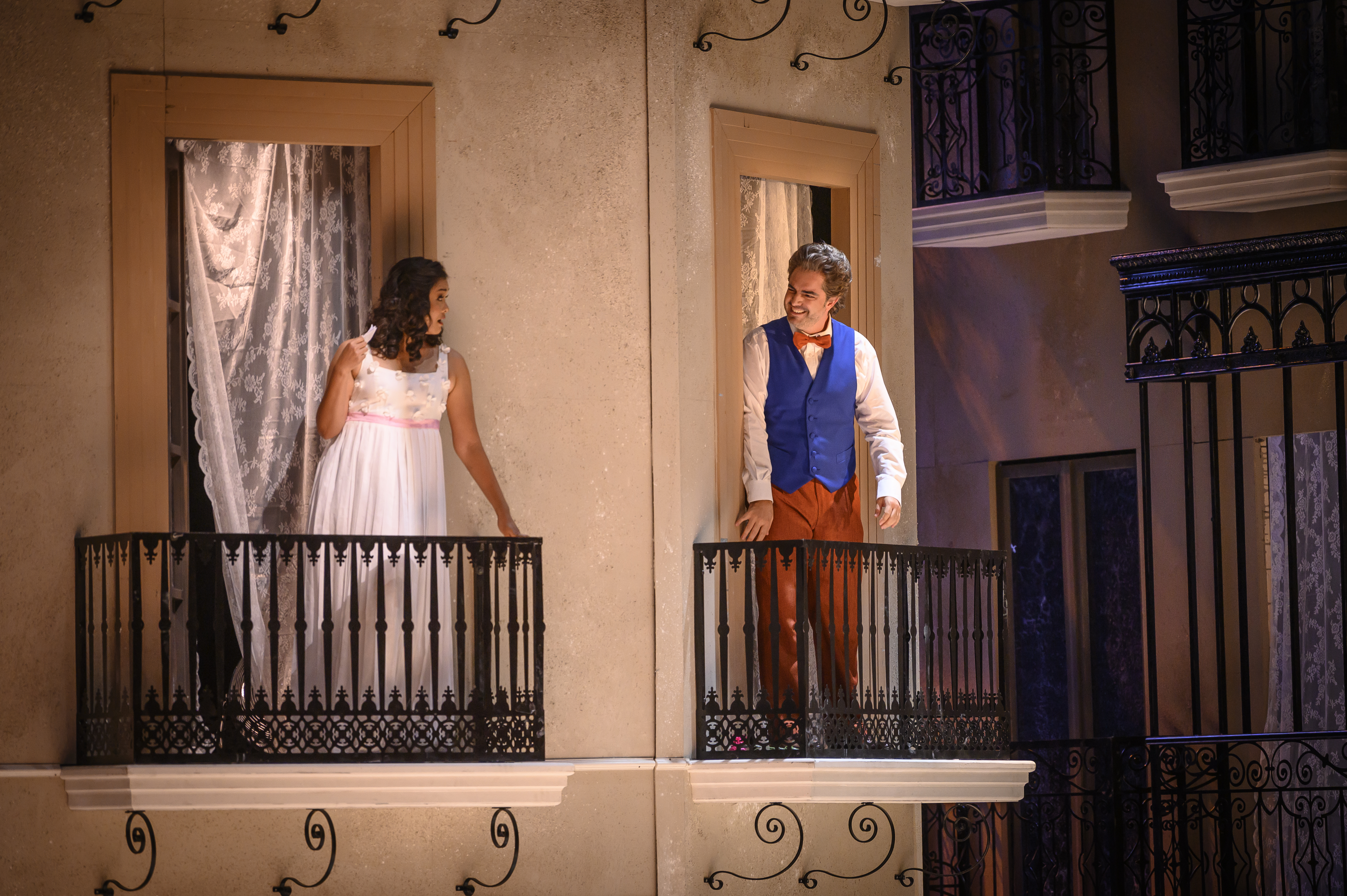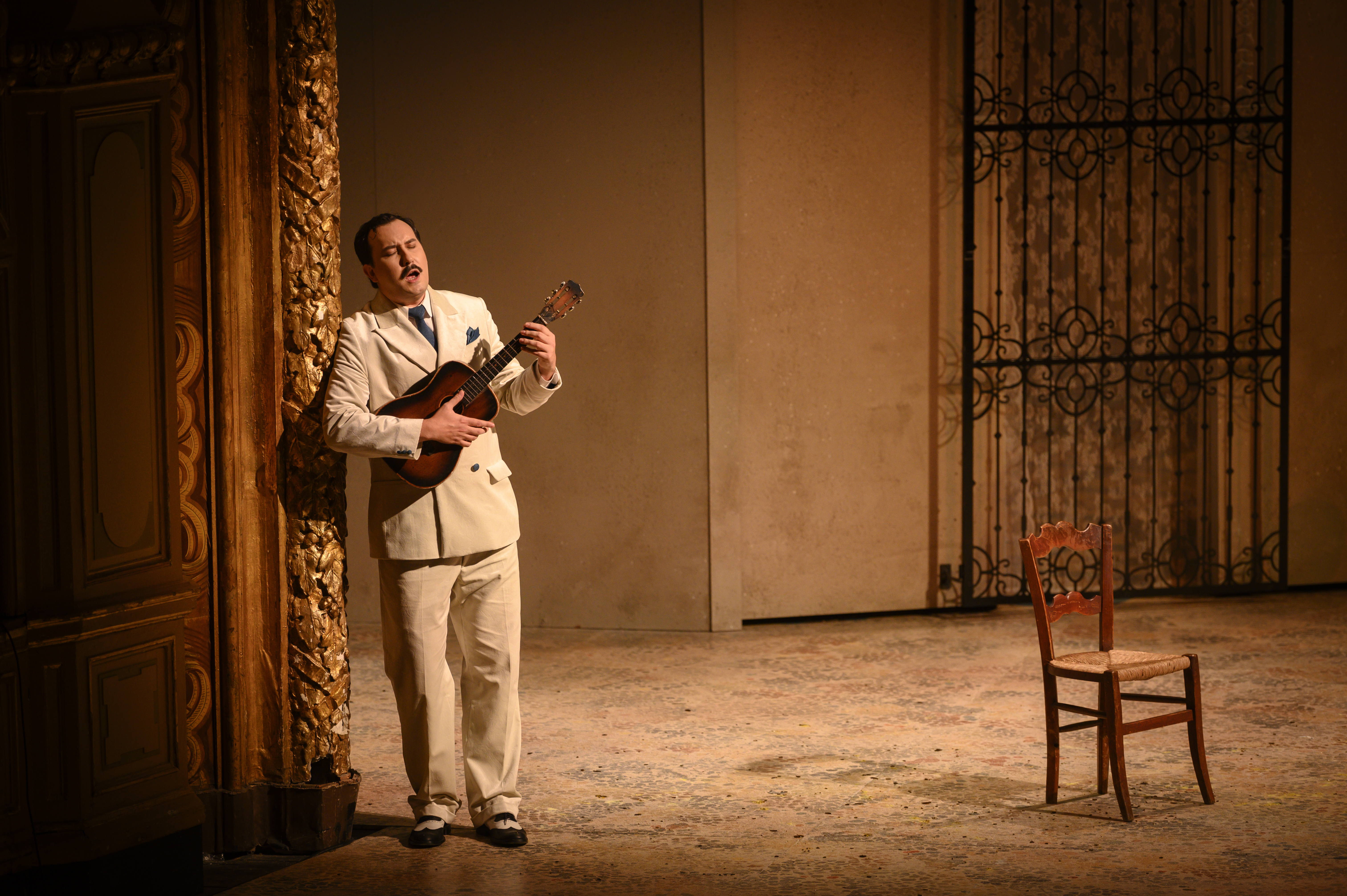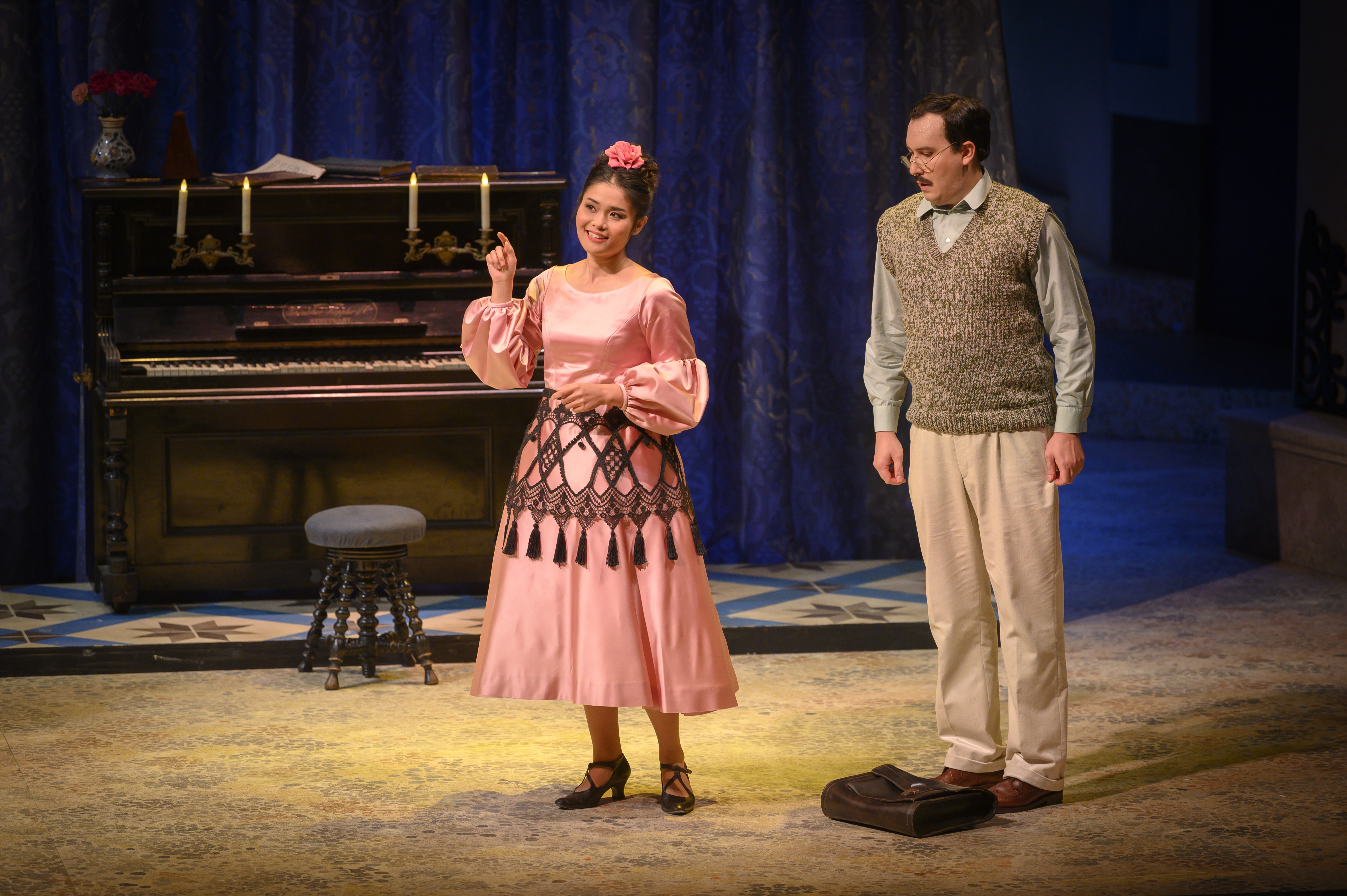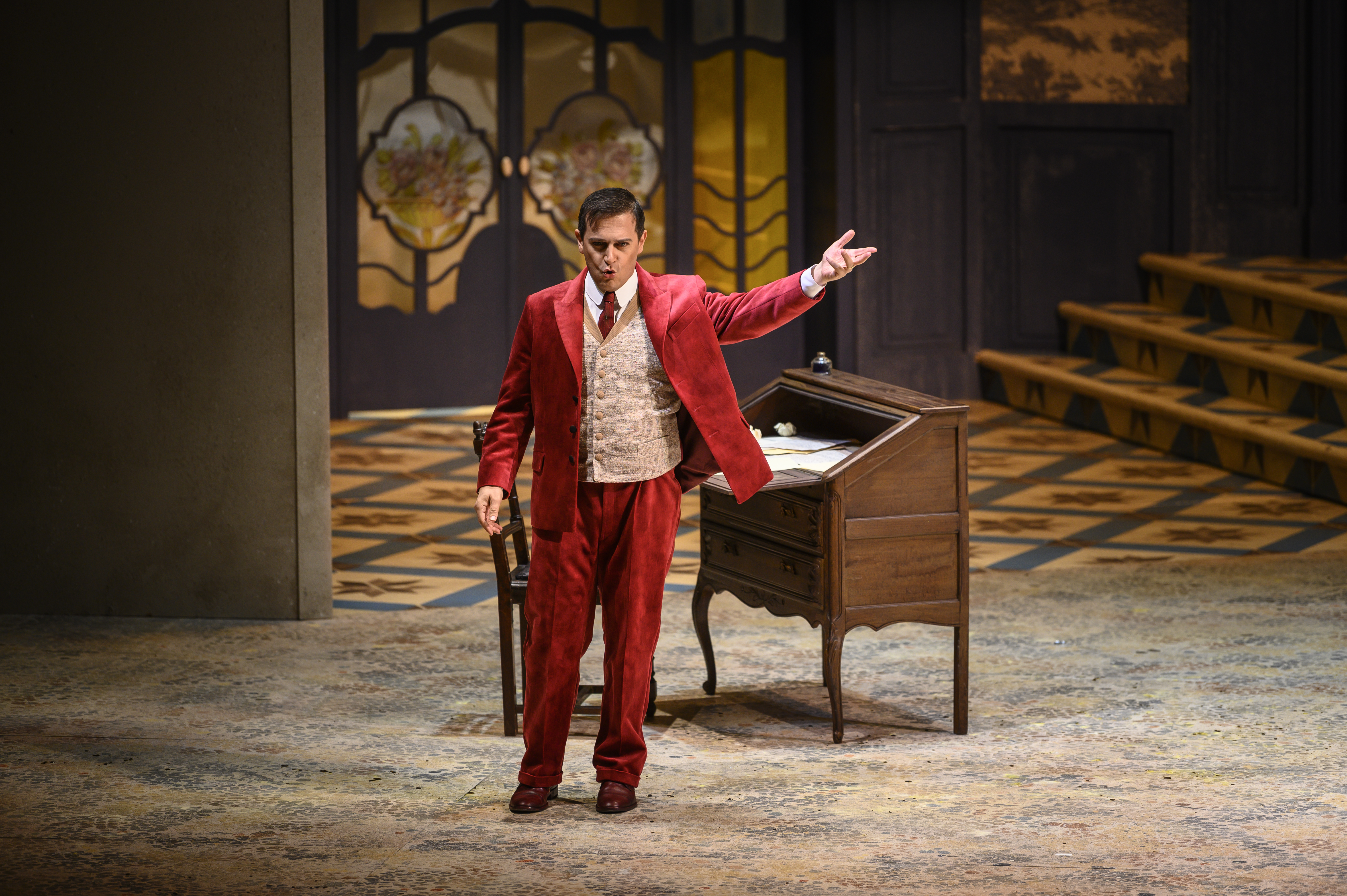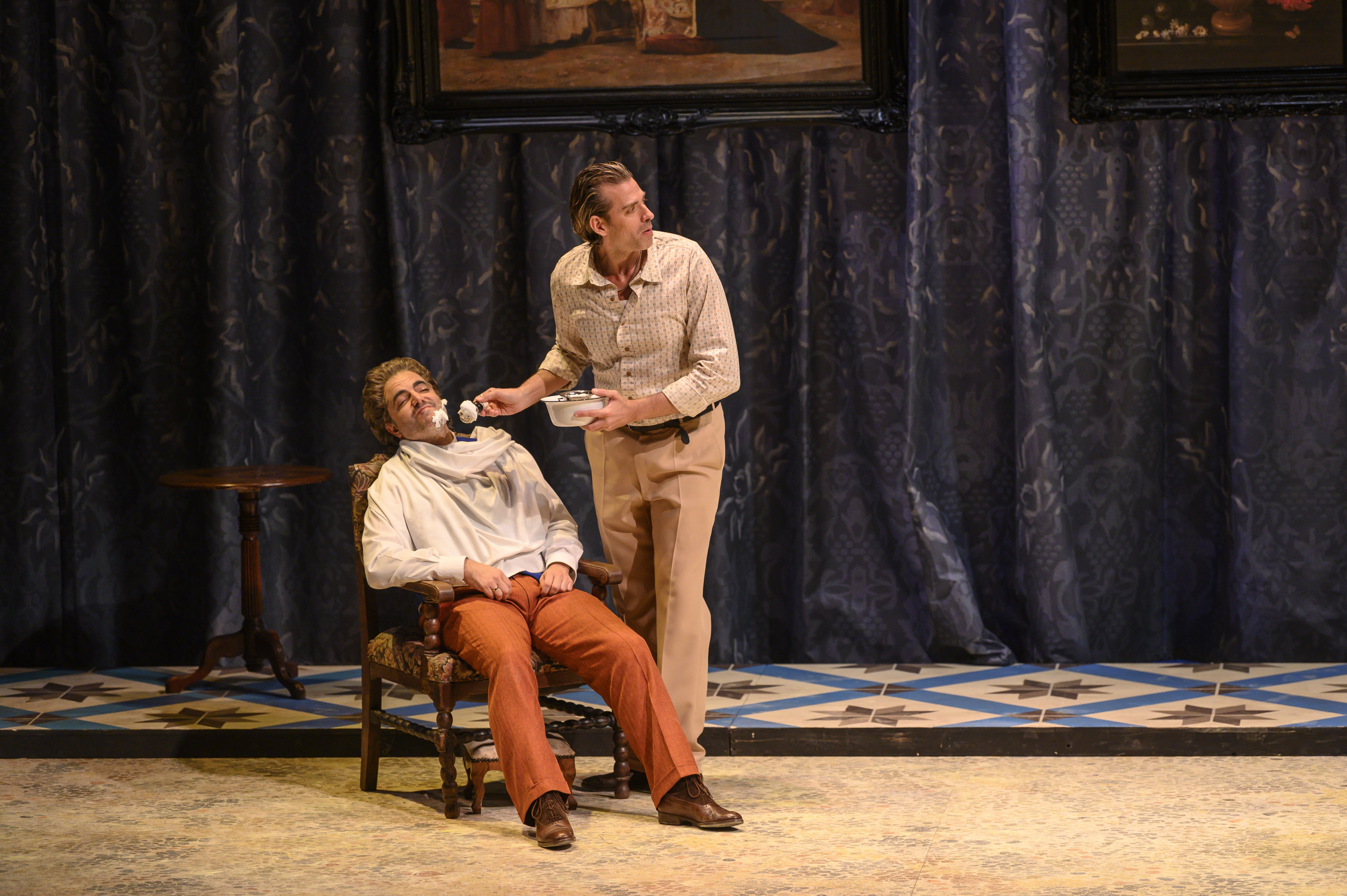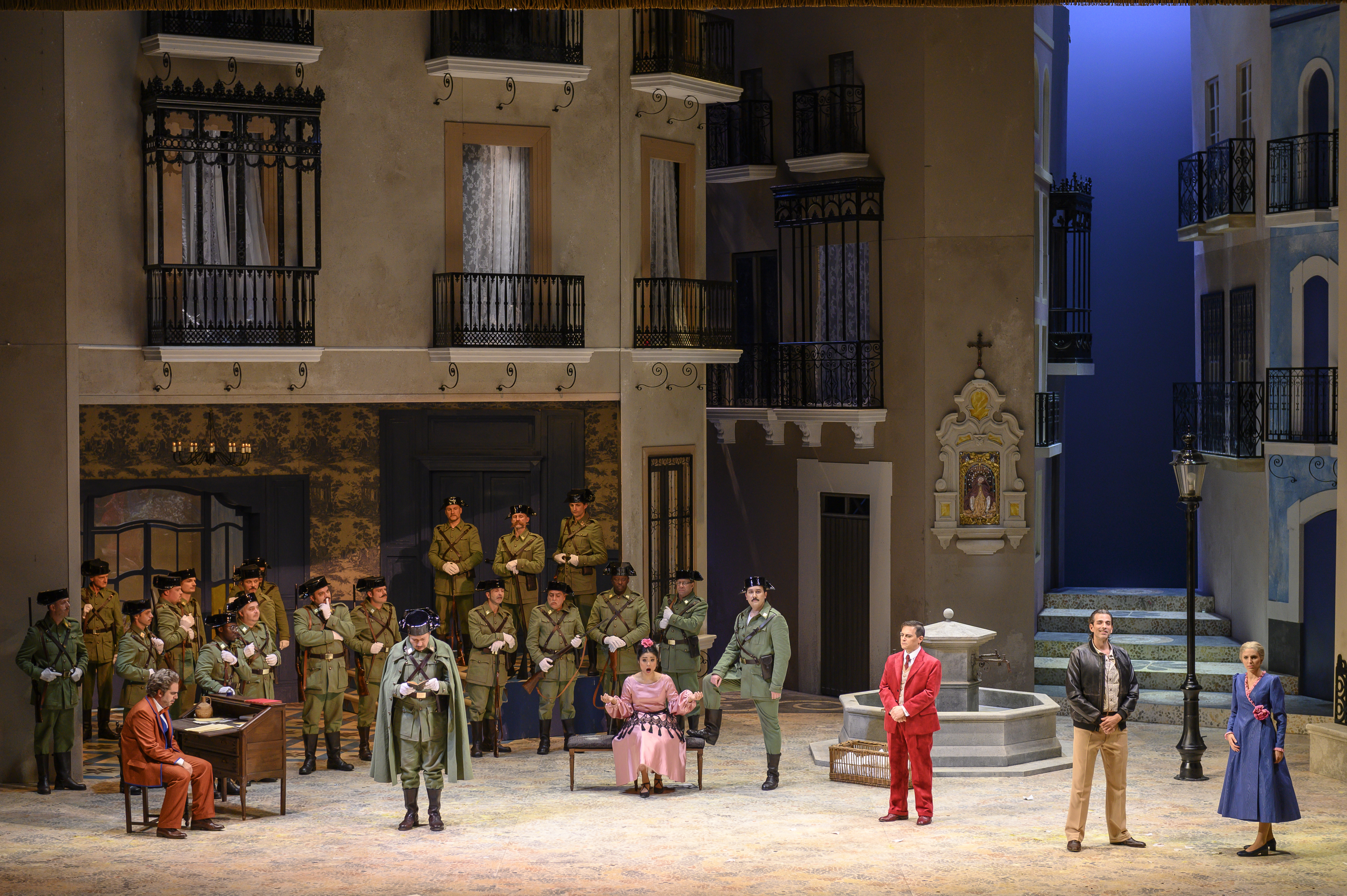A farce, a bit of silliness and some great music, an afternoon performance of Rossini’s most famous opera buffa in Liege, was a welcome escape from world affairs.
In this production, director Vincent Dujardin places the events in a Seville inspired by films of the Spanish realist period of the forties and fifties. Nevertheless, Rossini’s Seville is still a very Italian one. It is based on the book of the same name by Beaumarchais and is a prequel to the Marriage of Figaro, also famously transferred to the stage by Mozart thirty years earlier.
Opéra Liège’s programme is full of fascinating background notes including that Rossini churned this work out in around 20 days. How? Well partially by cribbing bits from Haydn and recycling material from his own work. This wasn’t in the slightest bit unusual at the time given that in 1816 Italian opera was at its height of popularity, with an audience hungry for new productions. As composers made their living from performances new works had to be produced at speed and Rossini was happy to oblige, composing nearly forty operas before he reached the age of 37 when he chose to stop, for reasons that aren’t entirely clear, but may have included exhaustion and ill health.
Under the baton of Giampaolo Bisanti the orchestra of Opéra Liège struck up with the rousing overture to this classic. The curtains open and we see Count Almaviva’s (Ruzil Gatin) attempts to woo the beautiful ward of old Doctor Bartolo (Pablo Ruiz), Rosina (Aya Wakizono), to no avail. What does one do in this situation? Well, you turn to an expert, a know it all, a factotum. The ‘Jack the lad’ to sort out all these dilemmas rocks-up on his Vespa, then brags about his work. Yes, he’s a barber – and so the name – but he’s really an expert fixer. If you’re a widow he’ll find you a husband, he dabbles in veterinary medicine, he’s a pharmacist, in short, if you need someone to intervene in just about any way he’s your man.
The name of this fixer, Figaro (Vittorio Prato). It was very hard to see how any woman, including Rosina, would not be falling at his feet. Prato is a specialist in belcanto with a beautiful, rich baritone voice to charm. Prato trained under Pavarotti and Ivo Vinco. Every time he’s on the stage he holds it. He is full of himself, but not without reason, and for a little bit of gold he’ll help you out with your troubles; the opera is really a testament to his creative problem solving. Of course, Figaro isn’t the romantic lead, but I think most women would throw aside any suitor to spend some time with Fi-ga-ro, Figaro, Figaro, Fi-ga-ro. In the programme notes I see that Prato will be back in Belgium, the next time in La Monnaie, in Verdi’s Nostalia e Rivoluzione. I have one piece of advice, go!
Don Bartolo (Pablo Ruiz) and Berta (Eleonora Boaretto) were the other stand out performances for me. Both excellent voices, but also actors capable of doing a comic turn. Rossini’s work requires a very high level of technical virtuosity and can be an interpretative challenge. Chiara Tirotta will take on the role of Rosina for two of the remaining performances, likewise Marcello Rosiello will sing Figaro.
One of my favourite moments was the end of the first act bringing together all the main protagonists and chorus in a dizzying commentary on the turn of events, which received an ecstatic response from the audience and gave everyone a bounce in their step on their way to the bar at the interval.
There are three further performances on 24, 26 and 28. For further details: www.operaliege.be
All photos © J Berger Opéra Royal de Wallonie


